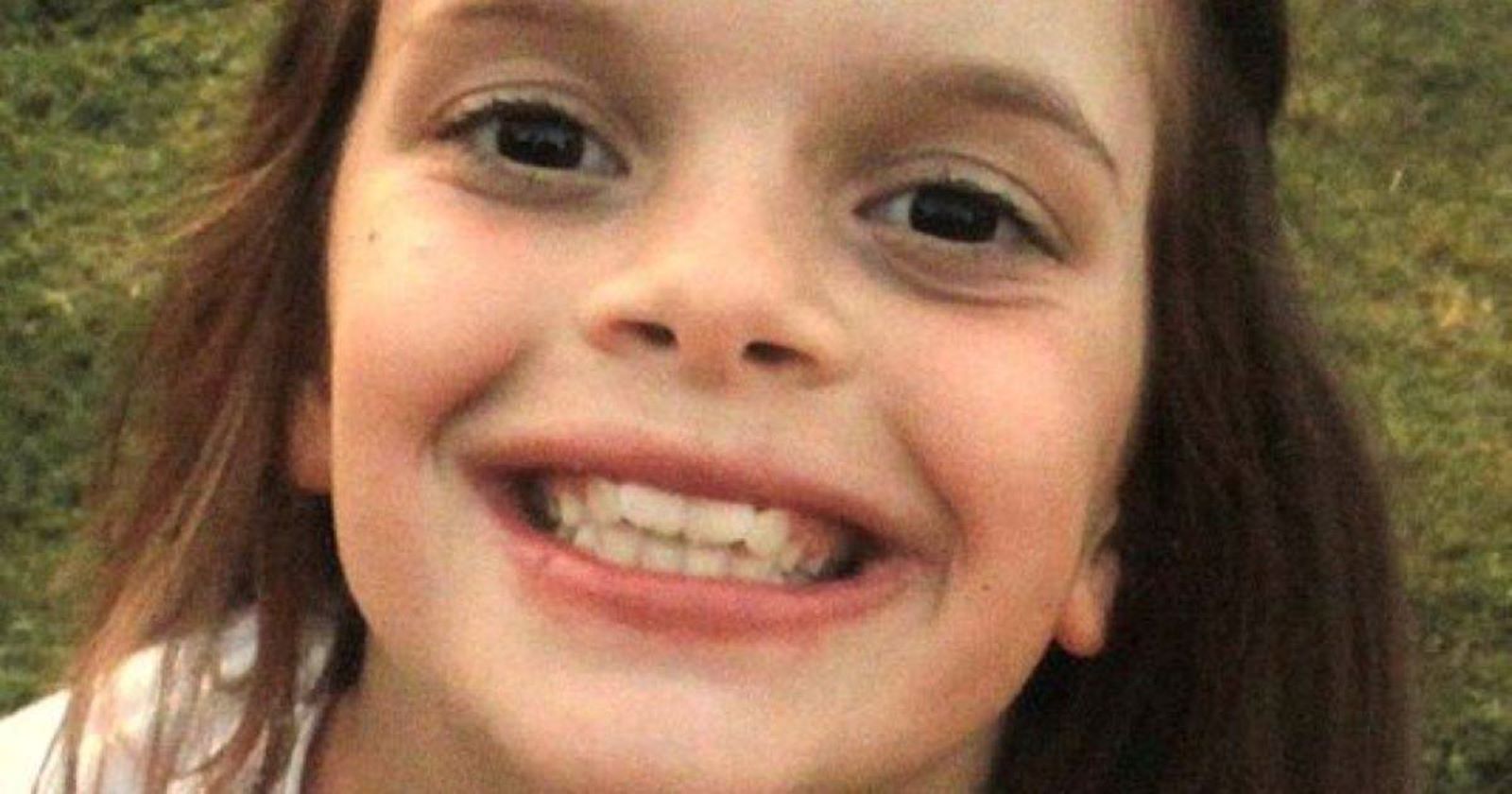In his ongoing fight to avoid the death penalty, the man convicted of killing 10-year-old Hailey Owens in 2014 was back in a Greene County courtroom this week.
The three-day hearing re-opened memories of a crime that shocked the conscience of the community, and explored new defense claims tied to the use of methamphetamine and pornography by the defendant, plus suggestions he was drawn to Hailey because she resembled a former high school girlfriend.
And the defense raised an unusual argument that the judge in the case had a conflict of interest because he was a member of the community and that the judge “considered the Springfield community as a whole a victim” in Hailey's murder.
Craig Wood, now 55, was convicted of first-degree murder by a jury in 2017 and sentenced to death in January 2018 by Greene County Circuit Judge Thomas Mountjoy, who has since retired.
Wood’s legal team is asking the court to vacate, set aside or correct the judgment of his conviction and death sentence.
Mountjoy returned to the bench this week to oversee the three-day hearing in which Wood’s attorneys argued — among numerous other claims — that Wood had ineffective assistance of counsel during the guilt and penalty phase of his trial, that his due process rights were violated and that he was subjected to cruel and unusual punishment due to the case overload issues in the Missouri State Public Defender’s Office in Kansas City.
Who testified in court this week?
On March 25, the first day of the evidentiary hearing, Wood’s public defender Valerie Leftwich called several character witnesses to testify, including old friends from high school who testified Wood was devastated when his high school girlfriend broke up with him and that Wood never seemed to move on with his life. At least two of those witnesses testified they believed Hailey Owens looked like Wood’s ex girlfriend.

On March 26, the second day of the hearing, Wood’s legal team called four expert witnesses, including mental health professionals who said they evaluated Wood but were not called to testify at his trial. Wood’s current attorneys argue Wood had “ineffective assistance of counsel” because his trial attorneys did not present evidence to support a “diminished capacity defense” during the guilt phase of trial and did not present mitigation evidence about methamphetamine addiction during the penalty phase.
On March 27, the third and final day of the hearing, Wood’s attorneys called Rosemary Percival, with the Public Defender’s Office in Kansas City, and Patrick Berrigan and Thomas Jacquinot, all with the Public Defender's Capital Case Division. Berrigan and Jacquinot represented Wood during the guilt and penalty phase of his trial. Percival represented Wood in his subsequent appeal.
Not Wood’s first attempt to avoid death penalty
Wood, who was a stranger to Owens, abducted the Westport Elementary fourth-grader off the 3200 block of West Lombard Street on Feb. 18, 2014, and drove her to his home. There, prosecutors say he raped her and then shot her in the back of the head.
Wood was convicted of first-degree murder by a jury in November 2017. But because the jury was unable to reach a unanimous verdict on punishment, the decision went to Judge Mountjoy.
The Missouri Supreme Court affirmed Woods’ conviction and death sentence in July 2019.
In November 2019, Wood filed a motion pro se — without an attorney — asking the court to vacate, set aside or correct the judgment of his conviction. This document is six pages long.

On March 26, 2020 and with the assistance of an attorney, Wood filed a 231-page amended motion that contains 22 claims. In this motion, Wood claims he had ineffective assistance of counsel for numerous reasons, including that his trial attorney failed to call to testify a qualified forensic psychiatrist specializing in addiction neurobiology to support a diminished capacity defense and to present mitigating evidence on methamphetamine addiction in the penalty phase.
The motion claims his due process rights were violated and prosecutorial misconduct occurred when the state “falsely claimed that with a death verdict, the jury spoke for Hailey and her family” during the penalty phase.
Missouri and Indiana are the only states in which a judge has the ability to sentence the convicted person to death.
Wood’s attorneys say judge had conflict of interest
Wood’s attorneys claim Judge Mountjoy had a conflict of interest which “precluded him from being a fair and impartial sentencer” and that Wood’s trial attorney should have objected and moved for the recusal of Mountjoy after the jury was unable to agree on punishment.
On Wednesday, Wood’s current legal team questioned Wood’s former attorneys who represented Wood in the 2017 trial, taking issue with the trial attorneys for not objecting to and moving for Mountjoy’s recusal.
Wood’s attorneys claim prosecutors presented “an abundance of community victim-impact evidence and argument” during the penalty phase, including evidence about widespread media coverage and a candlelight vigil on Commercial Street that drew more than 10,000 people.

And since Mountjoy is a member of the Springfield community, Wood’s attorneys claim Mountjoy had a conflict of interest and could not be a fair and impartial sentencer.
“It is clear from the record that the judge considered the Springfield community as a whole a victim in the case based on his rulings allowing all the community victim-impact evidence into penalty phase,” Wood’s attorneys wrote in their motion. “The fact that Judge Mountjoy was a member of the Springfield community and was now the ultimate sentencer in a death penalty case … created a conflict of interest for Judge Mountjoy or, at the very least, the appearance of impropriety …”
Asked why he didn’t object to Mountjoy being the sentencer, Berrigan said it didn’t occur to him at the time.
Jacquinot, Berrigan’s co-counsel during the 2017 trial, called it an “oversight.”
“There was no good reason,” Jacquinot said.
Wood’s attorneys also claim his due process rights were violated in the penalty phase when prosecutors “falsely claimed that with a death verdict, the jury spoke for Hailey and her family.” Wood’s attorneys say the state engaged in prosecutorial misconduct when making those statements because Hailey’s mother had asked prosecutors seek a plea deal with Wood rather than pursuing the death penalty.
Wood’s use of pornography was ‘rampant’
Dr. Matthew Fabian, a forensic psychologist and neuropsychologist, testified he interviewed Wood “at length” four or five times beginning in 2015, the first interview happening a full year after Hailey was murdered. Fabian also reviewed crime scene photos, police reports and interviewed Wood’s family and friends.
Fabian diagnosed Wood with attention deficit disorder, substance use disorder, bipolar disorder and major depressive disorder. Fabian described Wood as being intelligent, but had low self esteem and difficulty meeting women or having age-appropriate relationships.
“He never really moved on (from his high school girlfriend),” Fabian said, adding that his high school girlfriend was the first person Wood was “emotionally vulnerable with” and the first person Wood had sex with.
This “set the stage for intimacy problems,” Fabian said, adding that Wood was using pornography to fill this void and that Wood’s use of methamphetamine was making him “hypersexual.”
“His use of pornography was certainly at that time rampant. He did not have any other sexual outlets,” Fabian said. “He was using pornography as a complete substitute. … When you use pornography like that, you won’t be rejected.”

Fabian testified Wood told him he’d been on a three-day methamphetamine binge when Wood kidnapped and murdered Hailey. Wood also told Fabian he had erectile dysfunction, was unable to get an erection and did not rape Hailey — contrary to the medical examiner’s findings.
Greene County Prosecuting Attorney Dan Patterson pushed back on Fabian’s assessment of Wood being “substantially impaired” at the time of Hailey’s murder due to his mental health and substance use.
Patterson confronted Fabian with testimony from multiple people who interacted with Wood the day before the murder and the day of the murder who all testified Wood seemed fine. Patterson pointed out that Fabian met with Wood more than a year after the murder and that Wood’s account of how much meth he’d used and when he used it has changed multiple times since his arrest.

“Self preservation and fear of consequences” can influence what a defendant says, Patterson argued.
“The truth of the matter is, you don’t know how much methamphetamine Mr. Wood used,” Patterson said to Fabian. Patterson argued Fabian doesn’t know when the meth was used, the quantity or the potency.
Fabian agreed he did not know.
Dr. Melissa Piasecki, a professor of psychiatry at the University of Nevada, also testified about Wood’s mental health and substance use disorder.
Piasecki said Wood, who coached middle school football and was a former paraprofessional, told Piasecki that young girls at school would often develop crushes on Wood and would “be goofy” for him. Because of that, Piasecki said Wood believed Hailey would be willing to have sex with him.
When Hailey was not willing, Wood was “very confused by her response,” Piasecki said.
According to Piasecki, Wood’s “capacity was substantially impaired” at the time of the murder.
Arguing against the notion that Wood was mentally incapacitated, Patterson reminded Piasecki and the court of Wood’s actions to cover up the crime: that he went to Walmart to buy bleach and drain cleaner; he changed his clothes twice and took his bedding to a laundromat; he stripped Hailey of her clothes and disposed of her clothes; he washed her body and put her in a trash bag; he put her body in a Rubbermaid tote, sealed it with duct tape and then stacked other plastic storage totes on top of it; and he was using a fan to dry out his basement when police arrived to his home.
Piasecki agreed all of those facts were true.
“And the evidence in this case is that any methamphetamine use was self administered,” Patterson asked the doctor.
Piasecki said yes.
“There is no evidence that the defendant Craig Wood was tricked by another person into using methamphetamine,” Patterson said.
Piasecki agreed.
“There is no evidence that the defendant Craig Wood was forced by another person into using methamphetamine,” Patterson said.
Piasecki agreed.
“No further questions,” Patterson said.
When will the judge decide?
As the hearing wrapped up Wednesday afternoon, Mountjoy discussed with the attorneys how much time they would need to submit any additional filings in the case.
Both sides agreed on giving the court reporter time to prepare a transcript of this week’s hearing. Once the transcript is complete, attorneys will have 30 days to submit additional documents. Sometime after that happens, Mountjoy will announce his decision.

